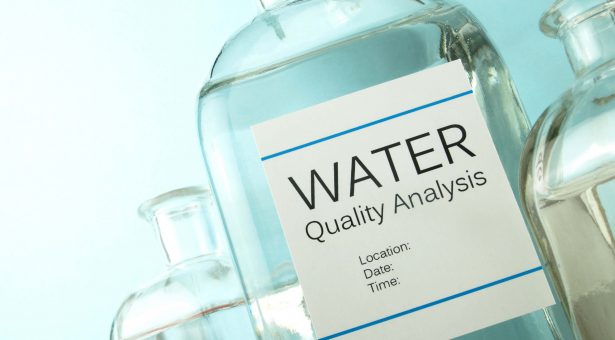Sophie has very positive experience with AQUAVALENS

Sophie has very positive experience with AQUAVALENS
Sophie Bennet met representatives from AQUAVALENS at the PIPS Employer Forum. AQUAVALENS is a consortium of SMEs, Industries, Universities and Research Institutes with the mission of protecting the health of European Citizens from contaminated drinking water and water used in food processing.
Sophie undertook her placement during the second year of her PhD in blocks, planning her PhD experiments around the timing of this. The main aim of the project was to establish which techniques in the field of potable water testing developed by AQUAVALENS were of greatest value to the respective stakeholders. Sophie attended the AQUAVALENS annual meeting where she met members of the consortium and learnt about the research that had been done and techniques that had been developed as part of the research project. Sophie used guidance and feedback from consortium members to develop three surveys and put these together using SurveyMonkey which she then distributed to a number of platforms including websites and direct emails. Responses were collected and Sophie was responsible for analysing the data, developing interest from new contacts for the consortium and helping gain more interest in AQUAVALENS as a whole.
Sophie contacted a number of people outside of academia on a daily basis and had to discuss research far from her own, which she found very challenging but rewarding; “I learnt a lot about how to approach certain subjects and how to put together emails for a range of backgrounds. I also learnt how an EU-funded research project works on all levels, and how all members from each work package come together and bring their own expertise”.
Sophie doesn’t feel her PIPS has directly benefited her research project but still rates the experience as a very positive one and recognises that she has learnt many new skills. Sophie found that attending the annual conference was a big confidence booster and also gave her a great opportunity to network. Sophie also gained communication, time-management and organisational skills during the internship; “I was independent throughout the research project, other than a weekly meeting with the project manager to guide me, so I needed to manage my time and guide my ideas”. The internship also allowed Sophie to gain first-hand experience of how academia and industry overlap and has helped open Sophie’s eyes to considering a role outside of academia after her PhD.
Mike Van Der Es, Sophie’s supervisor during her placement, was very happy with her work during the internship. “Sophie has contributed a lot to our team. She has added rigour to our efforts to better understand the large drinking water sector and also the food sector. She has demonstrated a lot of creativity in the face of obstacles and disappointments in terms of surveys and the data generated….. She has been efficient, dedicated and creative at all times and has really helped the project to gain a better understanding of industry needs”, says Mike. “At the project level Sophie helped us most by teasing out some very useful lessons from our partners in the water industry about potable water testing innovations. But best of all she impressed all of us with her own ability, she would a great addition to any water-related organisation thanks to her wide-ranging skills and her commitment”.
Sophie advises future PIPS students to make sure that they are very clear about the objectives and tasks required of the placement before they start, to avoid confusion and disappointment further down the line. “I was lucky enough to have a great overview and knew what was expected of me”, reflects Sophie. She also stresses that’s it’s important to take time to think very carefully about what it is you want to do and not to rush in to anything.
